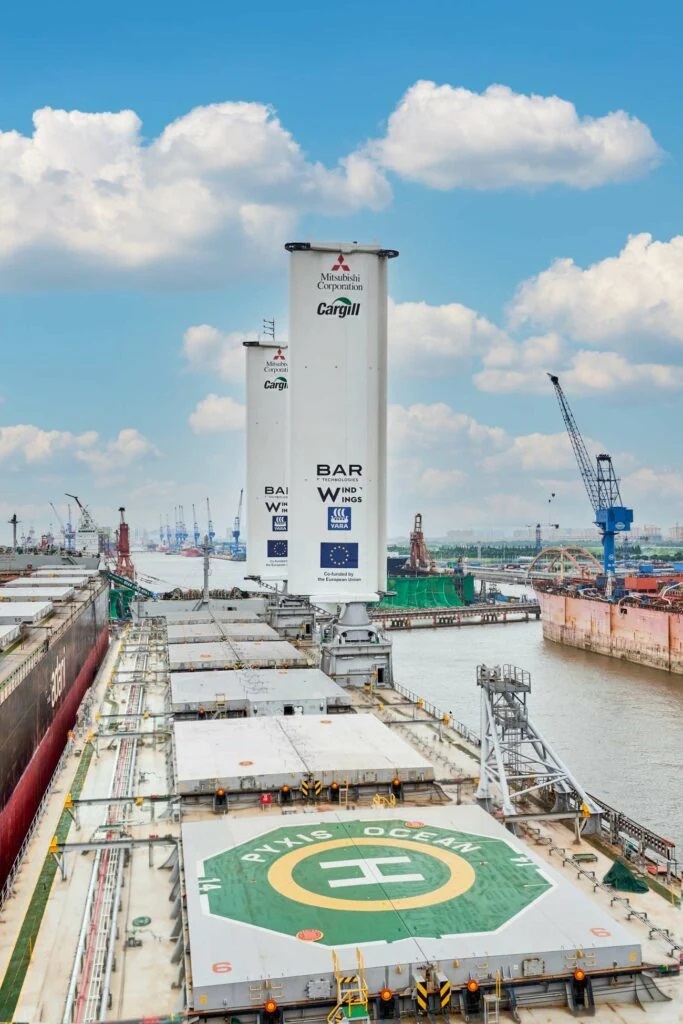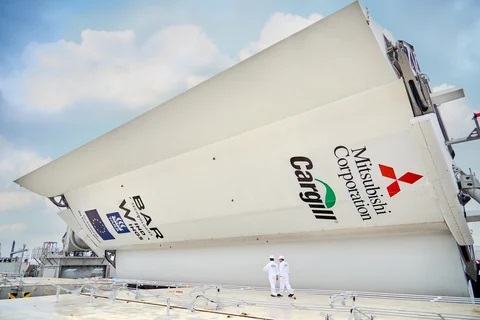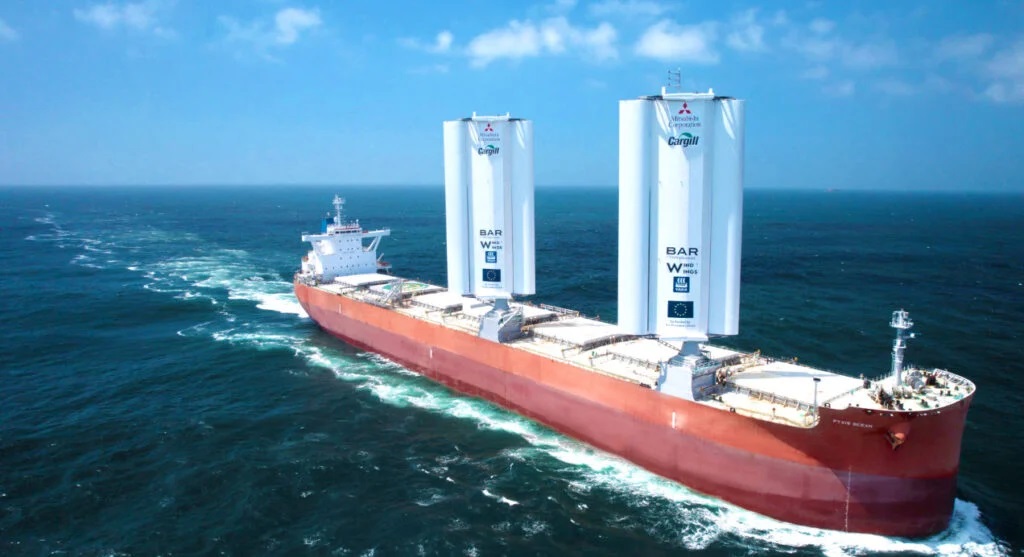A cargo ship fitted with a new type of rigid wind-powered sails has left China on its way to Brazil in what is expected to be a landmark trial for the pioneering technology.

The 37.5m structure, the WindWing, can reduce fuel consumption by an average of one and a half tonnes a day. The cargo ship giving the technology its first real-world test, Pyxis Ocean, has two WindWings installed, which are built of the same material as wind turbines for durability.
The wings fold when in port.
The ship has been chartered by food giant Cargill, whose ocean transportation division president Jan Dieleman described the decarbonisation journey as “not easy, but exciting”.
The effort is a multinational one – Cargill is a US-based company, while Pyxis Ocean is owned by Japan’s Mitsubishi Corporation. The wing’s manufacturer, Yara Marine Technologies, is a Norwegian company, using a development by BAR Tech, a UK firm. Funding was received from the European Union through its Horizon 2020 research and innovation programme, and the retrofitting of the ship with the new technology was done at a COSCO shipyard in China.
The WindWings’ performance will be monitored closely over the next months to inform updates to their design and operation.

BAR Tech and Yara Marine Technologies are planning of build hundreds of the fixed sails over the coming months, which they expect will mitigate a significant portion of the maritime industry’s carbons emissions, expected to be around 2.1 per cent of the global total.
The technology is particularly promising because it can be retrofitted onto older ships, allowing thousands of existing ships to be greened.
Featured Image:
Cargill
Inflation risk re-surging as tensions heat up between Israel and Iran
Oil and gold prices jumped after the latest strike by Israel
WATCH: Rare torrential rain in Dubai wreaks havoc and causes major disruption
Flooding hits shopping malls, destroying stock
Spain to end ‘golden visa’ scheme over property market impacts
While countries are slowly banning the practice, Malta remains firm in keeping the scheme alive






